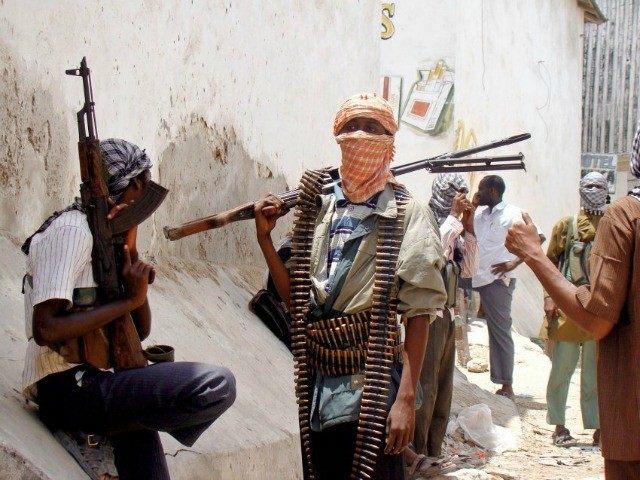A report by Tim Mak at The Daily Beast has U.S. intelligence officials confirming that there are, indeed, concrete ties between the Islamic State and Nigerian jihadist terror group Boko Haram.
In particular, National Counterterrorism Center Director Nicholas Rasmussen noted in a hearing before the Senate Intelligence Committee that authorities should be aware of “the increased intercommunication between Boko Haram and other terrorist groups in the northern part of, the northwestern part of Africa, and even with ISIL.” He argued that there is reason to believe that the two are functioning, at least in part, as “an interconnected terrorist network with the ability to share resources, personnel, expertise and tradecraft in a way that serves as a multiplier to their own capabilities, and that’s a disturbing trend.”
Mak notes that intelligence officials had not previously confirmed any suspicions that Boko Haram and the Islamic State were working together. This shift in the official picture of Boko Haram’s ties to ISIS comes as Administration officials have also been obliged to admit that, far from being “degraded and ultimately destroyed,” the Islamic State is expanding operations into Afghanistan, Pakistan, Libya, Algeria, Egypt, Saudi Arabia, and even Israel. Rasmussen even said he believes they are muscling into Yemen, which is getting pretty crowded, as the government was recently overthrown by an Iran-backed, anti-American tribe, while parts of the country are dominated by al-Qaeda.
These connections could have direct ramifications for U.S. policy. As Mak observes, President Obama is seeking authorization from Congress to use military force against the Islamic State and its “associated forces” around the world – a mandate that could actually grow more open-ended in the future, as ISIS allies with, or subsumes, Islamist militant groups in even more countries.
It has long been obvious to even the most casual observer that Boko Haram admires, the Islamic State; the African terror group has openly declared its intention to build a “caliphate” of its own, modeled after the one ISIS carved out of Syria and Iraq. It is not clear exactly what degree of active cooperation Rasmussen had in mind. His mention of “the ability to share resources, personnel, expertise and tradecraft in a way that serves as a multiplier to their own capabilities” suggests anything from strategy tips conveyed by email, to financial assistance or ISIS advisers sent to train and direct Boko Haram forces. The latter measure would be an obvious investment if ISIS is serious about nurturing Boko Haram as an African franchise; the Nigerian group certainly measures up to Islamic State standards of savagery, but falls short when it comes to battlefield tactics and grand strategy.
Confronted by a growing multi-national African force that now includes troops from Nigeria, Niger, Chad, and Cameroon, Boko Haram leader Abubakar Shekau released a defiant YouTube message in which he proclaimed, “Your alliance will not achieve anything! Amass all your weapons and face us, we welcome you! You send 7,000 troops? Why don’t you send 70 million? This is small. Only 7,000? By Allah, it is small. We can seize them one-by-one.”
The video message from Boko Haram included images of Islamic State leader Abu Bakr al-Baghdadi, and included references to the Sokoto Caliphate, a Nigerian establishment smashed by British colonial forces a hundred years ago. This is essentially the African equivalent of ISIS whining about the Crusades and referring to all of its non-Muslim adversaries as “crusaders.” (Its Muslim enemies are routinely designated “apostates.”) An online photo gallery published by Boko Haram purportedly illustrating life in the territory under its control greatly resembled similar propaganda from ISIS, and was actually entitled “Pictures From the Islamic State in Western Africa,” while a video released at the same time referred to Boko Haram forces as “soldiers of the Islamic State in Western Africa.”
Clearly the ideological ties between Boko Haram and ISIS are strengthening. Given the dearth of Western intelligence assets in either Syria or Nigeria, it will be difficult to establish just how strong their operational ties have grown.

COMMENTS
Please let us know if you're having issues with commenting.